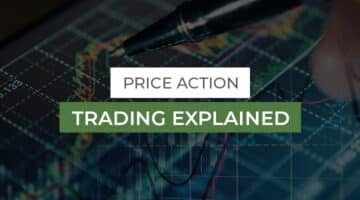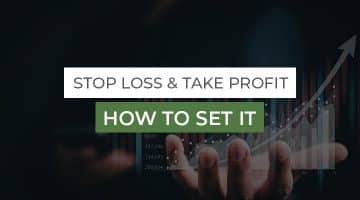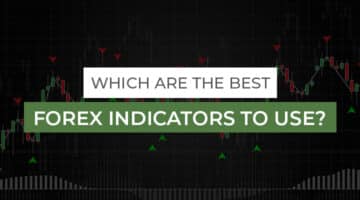What is Swap in Forex?

In this article
Have you been looking at opening a trading account and found yourself puzzled, trying to understand what is swap in forex trading?
We sympathise if this isn’t your first article about swaps in forex. Unfortunately, the phrase swap can have a different meaning in varying contexts.
In this article, we will explain precisely what a swap in Forex is from the perspective of a Forex and CFD trader.
What is a Forex swap?
A Swap in Forex is an interest payment you either settle or collect for carrying positions overnight into the following day. Swaps in Forex play an important yet confusing role, and they affect your trading strategy, sometimes without you even noticing.
A Swap in Forex is sometimes referred to as a Rollover, as you roll the trade over to the following day. Every currency pair will have a different Swap Rate applied to either Long or Short positions.
Brokers often update the Swap Rates in their trading platforms to reflect the market. Unlike the Bid and Ask prices which update several times a minute, Swap Rates are updated once a day at most, but sometimes less often.
Types of forex trading swap
There are two types of swap in forex trading
- Fixed-For-Fixed
- Fixed-For-Floating
Fixed-For-Fixed
The fixed-for-fixed swap involves exchanging the fixed forex currency interest payment in a single currency for fixed interest payments in another.
Fixed-For-Floating Swap
The fixed-for-floating swap involves the fixed interest payments in one currency which are exchanged for floating interest payments in another. In a fixed-for-floating swap, the principal amount of the underlying loan is not exchanged.
Why are Swaps in Forex Applied?
The Swap Rate will be determined by the set interest rate differential between the two currencies, which in this example would be the interest rate for depositing Euro minus the interest rate for borrowing U.S. Dollars.
Forex swaps are a way of getting the capital profit where needed so the activity can thrive. These swaps provide the government, and economic businesses access to potentially lower-cost borrowing. They also help them to protect their investment from the loss in rate fluctuations.
It’s also worth noting that Swaps aren’t just applied to currency pairs. You can also expect Swaps for other instruments offered by many Forex brokers. For example, Gold vs U.S. Dollar or DAX vs Euro.
Don’t confuse this notion of borrowing with leverage. Even if you trade without leverage, you still will pay or earn the same Swaps as if you had a 1:500 leverage for your account.
Who Sets the Forex Swap Rates?
Central Banks set swap Rates, or at least that’s where the rates originate. As a retail Forex trader, you’re quite a few levels away from trading with the Banks.
Unfortunately, the swap rates you get from your broker will likely be watered down so much that it would be unlikely that you could make a profit from positive Swap Rates.
How are Swaps Calculated in a currency pair?
When you hear that Swaps are related to interest rates, you might think they are expressed as percentages or easy-to-understand dollar amounts.
Retail Forex trading accounts calculate Swaps in Points. This notion is relative to Spreads, Commissions, Profits and losses; all revolve around Pips and Points.
Let’s examine how Swaps in Forex are calculated in a hypothetical situation.
The Swap Rate for Euro vs U.S. Dollars is -4.83 Points for Long positions and -0.81 for Short positions.
In this example, you would pay Swap charges for both Long and Short positions. For a long position, you would pay 0.483 Pips per Lot; so what does that mean?
Let’s say you have a Long position of 0.2 Lots in size, your trading account balance is in Great British Pounds, and the GBP vs USD rate is 1.31.
Pip value = $10
Swap Rate in Pips = -0.483
Position Size = 0.2
($10 -0.483 0.2) = -$0.966 /1.31 = 0.74 GBP
Cross Currency Swap vs Foreign Exchange Market Swap
Foreign exchange and cross-currency swaps are fairly similar and frequently used interchangeably.
The main distinction between the two is the payment of interest. Both parties must make periodic interest payments in the currency borrowed in a cross-currency.
In contrast to a foreign exchange swap, where the parties own the money being swapped, cross-currency swap parties borrow the amount from their home bank and then swap the loans.
How Swaps in Forex Work?
It’s logical to think that Swaps are calculated at midnight in the timezone of wherever you live or perhaps after your position has been open for 24 hours. You could be paying Swaps for having your trade open for just ten minutes.
Unless you have a Swap-free trading account, Swaps are charged at 4.59 pm New York time each day. The end of the New York session is the end of the trading day. Moments later, a new trading day begins as the Auckland session begins.
Here are some other crucial details about Swaps in Forex that you should be aware of;
- The Swap Rate: The Swap Rates set by your broker can change daily. They also vary between different trading pairs.
- The size of your position: The larger your position, the more you will pay or collect.
- The direction of your position: Swap rates vary depending on whether you are Long or Short.
- The day of the week: Some brokers charge triple Swaps, which means you pay or collect three times as much on a particular day of the week if you roll your position over to the next day. This event can occur on a Friday, Monday or even Wednesday.
- Your trading account currency: Swaps are deducted directly from your trading account balance as and when they are charged. If you keep a position open for two days and the Swap Rate hasn’t changed, you could pay or receive different amounts due to swap rates between your account balance currency and the quote currency.
Forex swap strategy
The most commonly used strategy for forex swap is the “Carry Trade Strategy”. So what exactly is this hyped-up strategy? A carry trade involves making a trade where you borrow a currency with a low-interest rate and invest in a currency with a higher interest rate.
You can easily understand this strategy with the following example.
The carry trade is a long-term trading strategy and is helpful when the currencies you choose have a significant difference. The risk with this strategy is that if an unexpected movement occurs in the market, It will instantly wipe out the entire profit you gain.
What is Tom’s Next Swap?
Tom’s next swaps are the fully tradable financial assets. These assets have a rate that fluctuates with the monetary policy expectations and the other market forces in contact. These market forces may be the supply rate, demand, and liquidity that affect the forex market. Companies often look to delay settlements by entering into the next swap arrangements.
You can understand this swap by the following example,
A trader buys a single contract of EURUSD and wants to delay the settlement by a day. The following day, the counterparty swaps the currency back to the original trader for the ‘next’ day at the rate of the previous transaction rat plus the additional tom next market rate.
The settlement is pushed back daily, with the trader’s transacted rate adjusted for the next market rate.
What is a Short-Dated Swap?
Short-Dated foreign exchange swaps are swaps with a maturity of up to one month. The forex market uses different short-dated swaps.
Following are the most commonly used short-dated swaps
Overnight (O/N)
A swap has been done today against tomorrow’s rates.
Tom-Next (T/N)
A swap will be done tomorrow against the next day.
Spot-Next (S/N)
A swap starting spot (T+2) against the next day.
Spot-Week (S/W)
A swap was done in the starting spot against the week later.
When are Swaps Charged in Forex?
Swaps are charged to your trading account depending on the broker you use. For most brokers, swap is charged around midnight, mostly between 23:00 – 00:00 designated server times.
There is sometimes a misconception about the swap timing. It is not always known, and sometimes it is charged for maintaining a position over the weekend, which is even possible if it’s not held over the weekend. To compensate for the market closing, the swaps are either charged on Fridays or Wednesdays, depending on the market timing.
In other words, if you hold your position overnight on the day the weekend swaps are applied, the swap charged will be around three times the normal swap.
To confirm the exact swapping time of your broker on your trading account, check your broker’s contract specifications for the asset you are trading or contact your broker’s main website for further information.
Why do brokers charge swaps?
Most brokers offer their traders to actively trade price changes in the global currency markets without actually buying the currency.
So, when the leverage forex position is entered, it is on an open-ended, rolling statement basis. As a trader, you can decide whether and when you want to close a position using a stop-loss or in the other form of trade management.
In this broker acts as the counterparty and uses the swap time to calculate the charges on the funds.
How does swap impact the Long term and Short term trading?
The rollover rate or the swap rate can impact the average profit gain of your trades. For traders trading using short-term contracts, the swap rate will have a small impact, or maybe in the case of day traders, there will be no impact on the profitability.
In the case of long-term traders, the trader should pay more attention. The longer you keep the opposition open, the more impact the swap will have on your asset profit balance. It is added to the balance every day.
If you are a long-term trader with high-volume orders, it might be helpful if you avoid swaps. This can be done using direct trading without added leverage or a swap-free forex trading account.
Swap-free accounts
You must think that a swap-free account exists.
Well, the answer is. Yes, I do. Islamic accounts on most brokerage companies do not have swap fees.
In Islamic finance accounts, lenders cannot charge any interest fee. Islamic trading accounts have another trading fee, such as the weekly fee that is charged at the beginning of the transaction, or sometimes they do not have any additional fee.
Why are swaps used?
Following are some reasons to use swaps:
Decreasing the borrowing costs
The best reason to use swaps in forex is to have certain cheaper debt. For example, a European company, “A”, borrow $150 million from U.S. Company “B”, and the U.S. Company “A” borrows 100 million euros from European company A.
This exchange is based on the $1.5 spot rate, indexed to the LIBOR.
The two companies will make the deal because it allows them to borrow the respective currencies at a favourable rate.
Reducing rate loss risks
Some companies have swaps to reduce exposure to the anticipated fluctuations in the exchange rates. For instance, companies are often exposed to risks when they conduct international business.
Final Thoughts on Understanding what a Swap in Forex is
New Forex traders often overlook Rollover costs when looking for a broker to trade with. Researching what a Swap in Forex is often an afterthought for many traders. It’s usually a seemingly hidden fee deducted from their trading account balance.
Swap Rates can vary widely from one broker to another, so it’s not something to negate from your decision-making process. Always compare and evaluate Swap rates in forex trading when choosing a broker, as you never know when you will need to carry a trade over to the next day.
Jason Morgan is an experienced forex analyst and writer with a deep understanding of the financial markets. With over 13+ years of industry experience, he has honed his skills in analyzing and forecasting currency movements, providing valuable insights to traders and investors.
Forex Content Writer | Market Analyst
Relevant Posts

What is a Pip in Forex and How Much are They Worth?
[top_three_brokers] Learn what is a pip in forex A commonly asked question, what is a…
Read more

Forex Trading in Kenya
[top_three_brokers] Like many African countries, Kenya has recently turned its attention towards forex trading. Many…
Read more

Price Action Trading Explained
[top_three_brokers] In the fast-paced world of forex, price action is the foundation stone for technical analysis. Many…
Read more

Stop Loss and Take Profit – How Do You Set It?
[top_three_brokers] As a trader, the most important role is to manage and protect your trading…
Read more

Which are the Best Forex Indicators to Use?
[top_three_brokers] If you are new to forex trading, technical analysis can be like solving a…
Read more

cTrader- A Good Trading Platform?
[top_three_brokers] After its initial release with FxPro, cTrader has been the platform of choice for…
Read more

What is Free Margin in Forex?
[top_three_brokers] When borrowing money from your broker, it gets referred to as 'trading on margin.…
Read more

Best Trading Platforms Reviewed
[top_three_brokers] Naturally, many traders are interested in learning about the best trading platform. One of…
Read more
Is gold’s bearish trend reaching its end?
[top_three_brokers] Gold has entered this month with a bang, registering monumental gains amid a weakening…
Read more

Heiken Ashi Indicator Explained
[top_three_brokers] Do you know what the Heikin Ashi technique is all about and for what…
Read more

What is a Pip in Forex and How Much are They Worth?
[top_three_brokers] Learn what is a pip in forex A commonly asked question, what is a…

Forex Trading in Kenya
[top_three_brokers] Like many African countries, Kenya has recently turned its attention towards forex trading. Many…

Price Action Trading Explained
[top_three_brokers] In the fast-paced world of forex, price action is the foundation stone for technical analysis. Many…

Stop Loss and Take Profit – How Do You Set It?
[top_three_brokers] As a trader, the most important role is to manage and protect your trading…

Which are the Best Forex Indicators to Use?
[top_three_brokers] If you are new to forex trading, technical analysis can be like solving a…

cTrader- A Good Trading Platform?
[top_three_brokers] After its initial release with FxPro, cTrader has been the platform of choice for…

What is Free Margin in Forex?
[top_three_brokers] When borrowing money from your broker, it gets referred to as 'trading on margin.…

Best Trading Platforms Reviewed
[top_three_brokers] Naturally, many traders are interested in learning about the best trading platform. One of…
Is gold’s bearish trend reaching its end?
[top_three_brokers] Gold has entered this month with a bang, registering monumental gains amid a weakening…

Heiken Ashi Indicator Explained
[top_three_brokers] Do you know what the Heikin Ashi technique is all about and for what…


